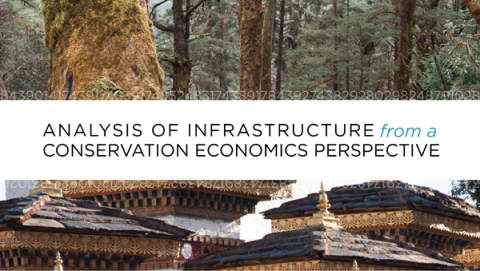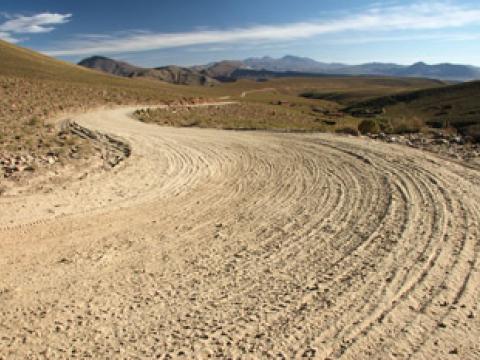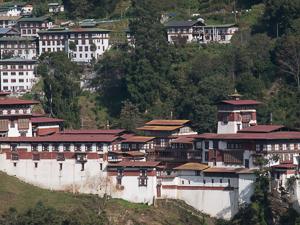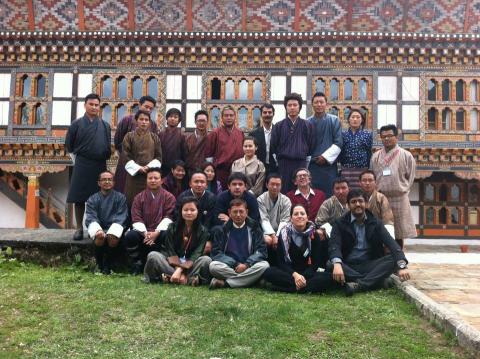
Bumthang, Bhutan
Twenty-two participants representing 3 countries and 15 organizations attended CSF's Analysis of Infrastructure from a Conservation Economics Perspective course in Bumthang, Bhutan. During the five-day course, participants gained an understanding of our core curriculum which includes Microeconomics, Natural Resource Economics, Environmental Valuation, and Cost-Benefit Analysis. Additional topics tailored for the region and sector of focus included Environmental Management and Policy, Infrastructure Best-Practice, and relevant case studies. Instructors were drawn from CSF, University of Brasilia, and Cambridge Resources International. Many thanks to our partners at UWICE for working with us to put on an excellent training!
ORIGINAL COURSE ANNOUNCEMENT
Conservation Strategy Fund is now accepting applications for our Analysis of Infrastructure from a Conservation Economics Perspective training course from May 12-16, 2014 in Bumthang, Bhutan. This course is being implemented in partnership with the Ugyen Wangchuck Institute for Conservation and Environment. Professionals working in Bhutan and other countries in the Himalayan region are invited to apply. Applications due March 31, 2014.
The primary goal of this course is to give professionals in the areas of natural resources and infrastructure development in Bhutan and the wider Himalayan region familiarity with the application of economic concepts to balance conservation of the environment with development of transportation and energy infrastructure. The course will present the fundamental concepts of microeconomics, which deal with market theory, and then move on to the area of environmental valuation and environmental and infrastructure policy. The course also includes a module on cost-benefit analysis, during which participants will learn how to assess the economic feasibility of projects and policies.
COURSE PROGRAM
Microeconomics (1/2 day): The microeconomics, or market theory, module occupies the first morning of the course. This session includes the conditions for competitive markets, supply and demand, market equilibrium and price elasticity.
Environmental Economics (2 days): The environmental economics module starts with an analysis of market failures that lead to environmental damage or over-consumption of resources. Participants study public and private goods and the role of property rights. The module proceeds to an explanation of the range of environmental values and the methods used in their estimation.
Cost-Benefit Analysis (2 days): The cost-benefit module enables students to calculate rates of economic return on projects and policies. Participants learn how to construct a basic cash-flow in an Excel spreadsheet, and calculate all the major indicators of economic feasibility. Students perform a cost-benefit analysis and present their results in a simulation exercise.
Best practices infrastructure policy and management (1/2 day): This section will examine the policies and processes currently being pioneered to minimize the impact of infrastructure development and accomplish an adequate balance with environmental goals.
PARTICIPANTS
This course is for people at the forefront of natural resource and infrastructure development challenges in the Himalayas, including managers of conservation programs and protected areas, infrastructure planners and EIA practitioners, directors of non-governmental and community organizations, and representatives of government agencies. Applicants from a variety of disciplines such as biology, law, anthropology, or economics are encouraged to apply. Previous training in economics is not necessary. Applicants must be proficient in spoken and written English.
Participants will be drawn primarily from Bhutan, with additional participants drawn from elsewhere in the Himalayan region.
INSTRUCTORS
Analysis of Infrastructure from a Conservation Economics Perspective will be taught by experts in environmental economics who also have extensive field experience and understand real-world conservation challenges related to the marine environment. They are drawn from CSF staff as well as academic institutions such as the University of Brasilia. Links to individual instructor profiles are provided at the bottom of this page.
COST
Selected applicants will be provided a scholarship that covers tuition, accommodation, meals, local transportation, and course materials. Participants from outside Bhutan are responsible for their own travel to and from Paro, Bhutan.
This course is made possible through CSF's Conservation Economics Initiative supported by the Gordon and Betty Moore Foundation and by the support of the American People through the United States Agency for International Development (USAID).







